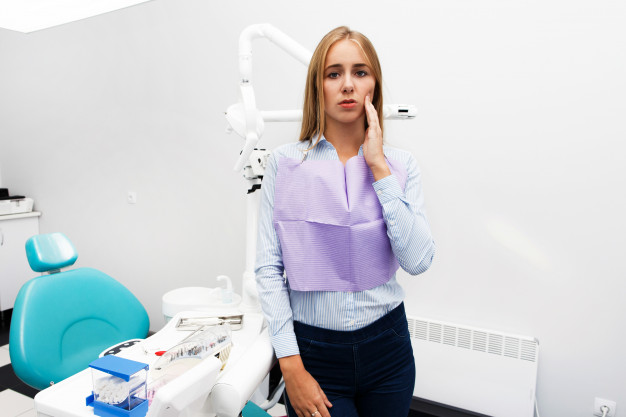The things you eat, the things you drink, and how you brush your teeth all play a role in your dental health. You could be harming your teeth without realizing it.
 |
| dentist office |
If your Palo Alto Dentist has mentioned enamel erosion, it is time to listen. Your enamel is the calcified tissue that covers your exposed tooth. It works similarly to a shield. It protects your teeth against the things you eat and drink. It also protects against cavities.
How your enamel is worn away
Your dental enamel works very hard as a shield, but the one weakness it has is acid. Your saliva plays an important role. Your saliva neutralizes acids in your mouth so that you can maintain a regular pH of 5.5. There are calcium ions and phosphates that work hard to keep your enamel strong. As the foods, you eat and the drinks you consume break down the phosphate and the calcium ions, they have to get replaced. All of this rests upon your saliva production. It is for this reason that foods requiring a great deal of chewing are, as a whole, healthier for you than processed foods. A piece of cake, for example, does not require nearly as much chewing as a carrot. And it is the chewing process that activates your saliva production and helps to keep your teeth healthy.
Related Article: Tooth Erosion: Causes, indications, prevention, and treatments
If your saliva cannot keep up with the amount of acid in your mouth, you start to experience enamel erosion. Once your enamel wears away, there’s no turning back. This is one of the few parts of the body that cannot regenerate because it is not comprised of living cells. As soon as this protective covering wears away, as soon as your dental shield is gone, it starts to expose the nerves in the center of your tooth. This makes your tooth sensitive to hot and cold. If you leave this untreated, it can eventually lead to tooth loss.
It is important to understand that erosion is a natural part of the aging process. You are supposed to use your teeth to eat and drink. You are supposed to use your teeth to chew over the course of your entire life. As a result, as you age your enamel will start to wear away.
How your diet impacts erosion
The problem comes when your enamel erosion is not the result of aging. Today many adults and even children are experiencing enamel erosion because of diet. If you consume a healthy and balanced diet, you probably won’t hurt your teeth too much. But if you drink sodas every day, sweet tea, sports drinks, or anything that has a high amount of acid and sugar, it will wear down your enamel. Once the acids wear down the enamel, your sugars will develop cavities. Do not be folded into thinking that sugar-free drinks are better for you. These can be highly acidic.
It is important to talk to your dentist about your dietary habits so that you can make modifications or improvements to your lifestyle right now to prevent further erosion.
Medical problems
For some people, medical problems might cause acid reflux for frequent vomiting. When this happens, it exposes your teeth to stomach acid. Your stomach acid is incredibly strong and will wear away the enamel on your teeth. If you suffer from things like acid reflux in your sleep, this risk is magnified because you produce less saliva when you sleep.
Even if you don’t know what is happening, your dentist can tell during your regular appointments. If your acid reflux happens at night, your dentist might be able to see what is happening inside your mouth and they might even be able to tell you which side you sleep on predominantly based on which side of your teeth is wearing down faster. Grinding your teeth while you sleep or during the day can wear down your enamel as well. Brushing your teeth too hard does the same thing. It is for this reason that is talking to your dentist is important. They might be able to recommend dietary changes, referrals for doctors, or solutions to things like grinding your teeth.
References:
- http://heritageparkdental.com/
- https://en.wikipedia.org/wiki/Tooth_enamel
- https://www.webmd.com/oral-health/guide/tooth-enamel-erosion-restoration

Comments
Post a Comment